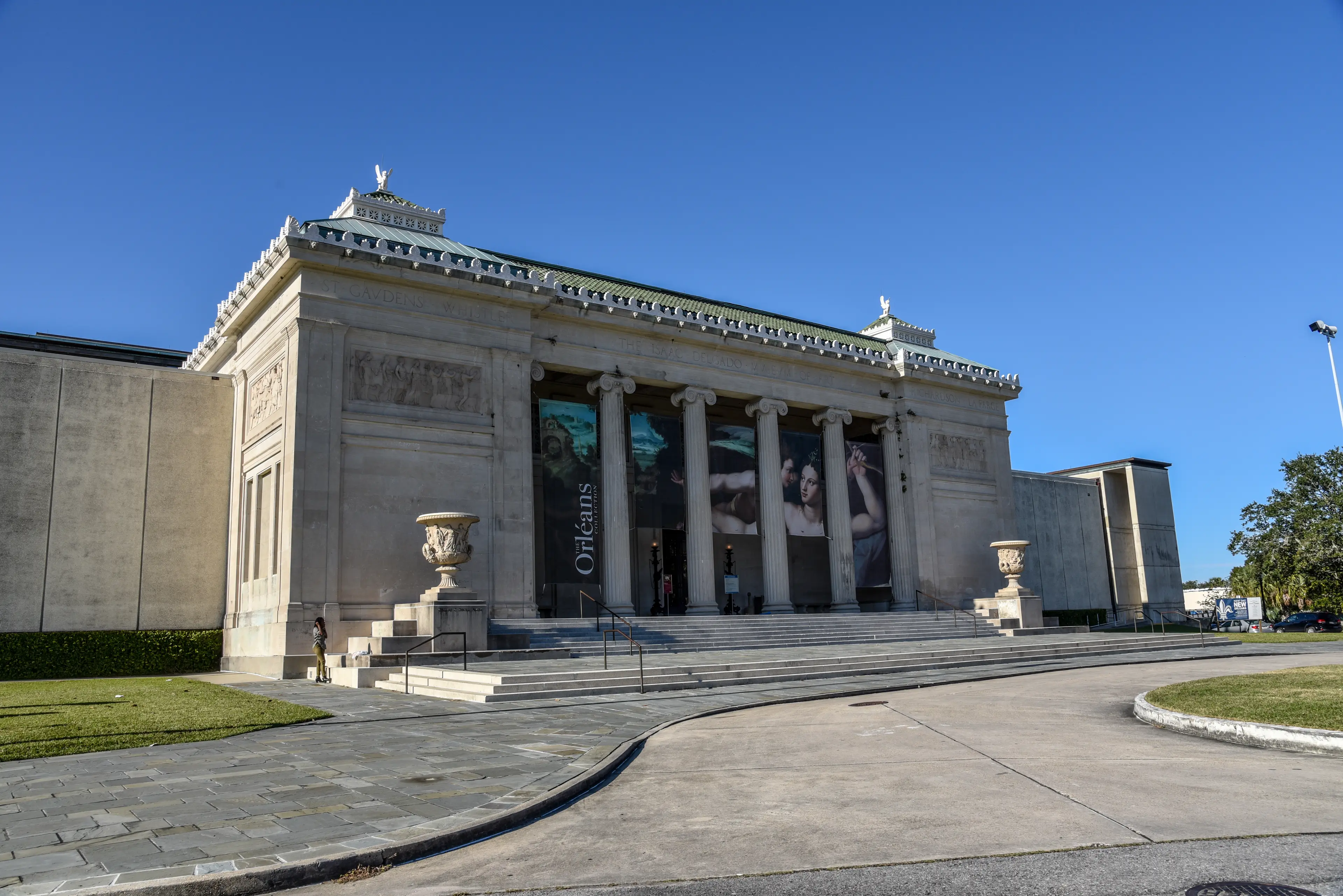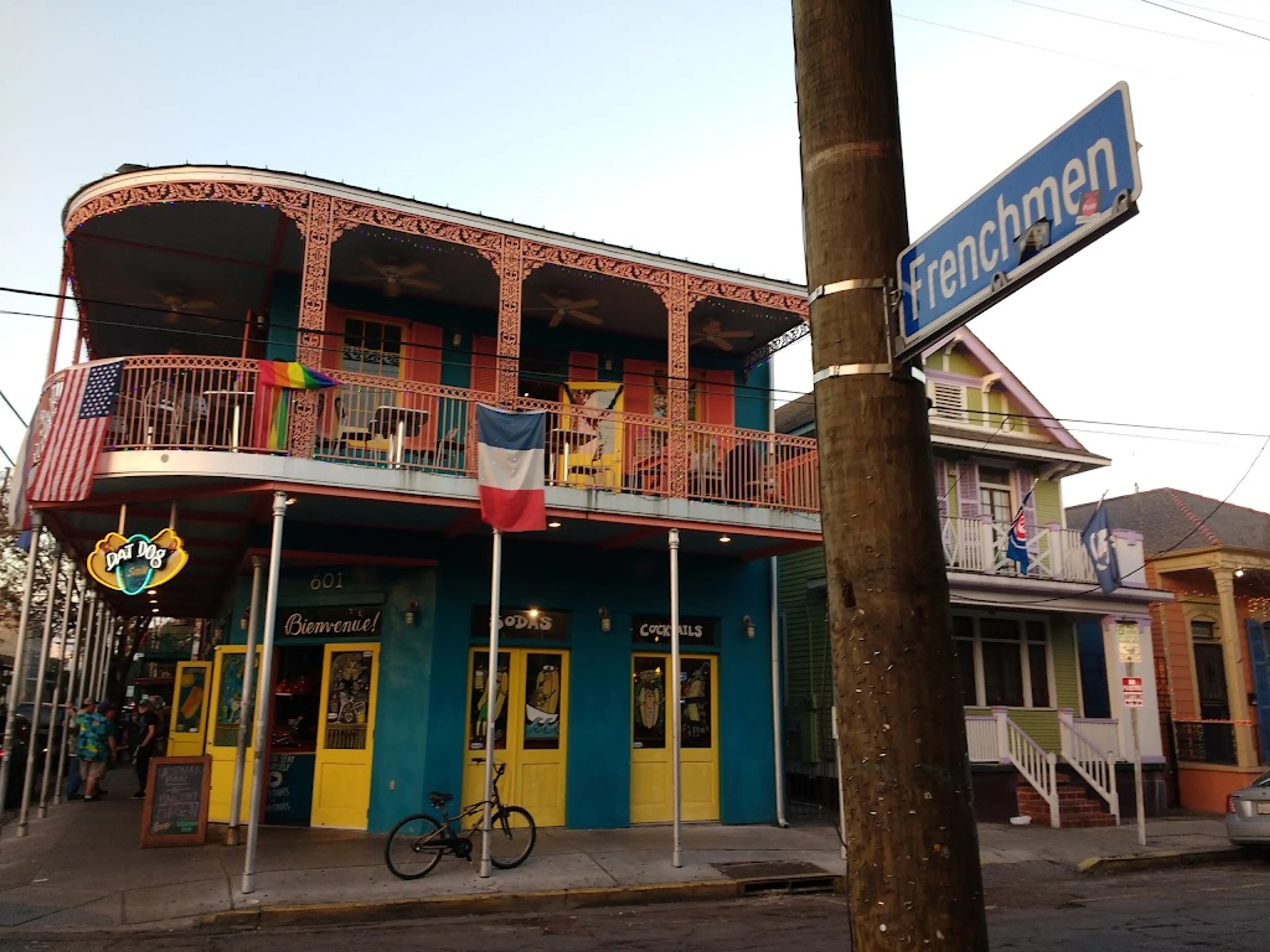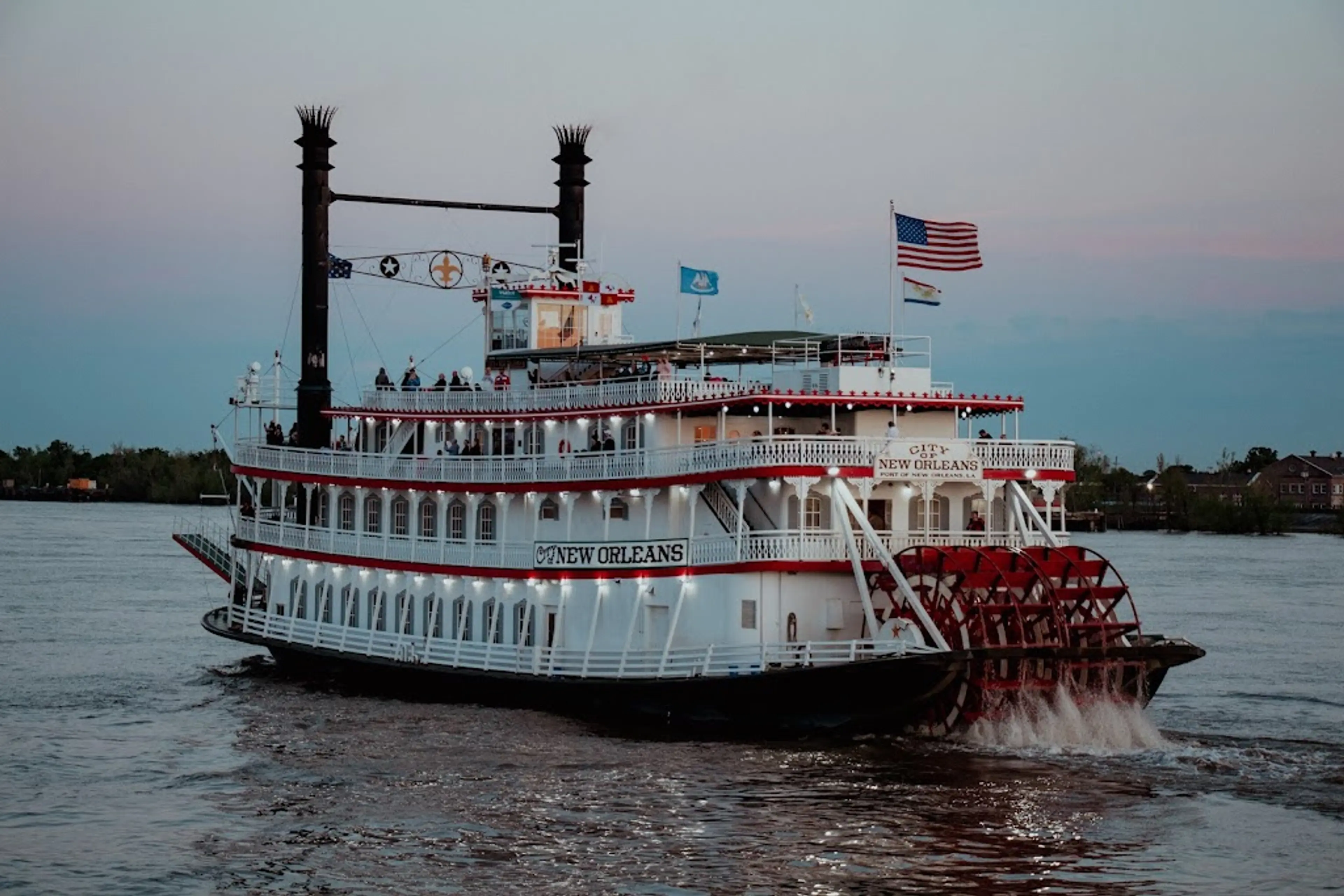3-Day Family Shopping and Sightseeing Guide in New Orleans
New Orleans, Louisiana
3 days





About New Orleans, Louisiana
Experience the vibrant culture of New Orleans, Louisiana, a city rich in history, music, and culinary delights. Explore the French Quarter, famous for its lively jazz clubs, colorful architecture, and the iconic Bourbon Street. Visit the historic St. Louis Cathedral and the bustling French Market. Immerse yourself in the city's unique culture with a tour of the Mardi Gras World or a haunted history tour. Enjoy a steamboat cruise on the Mississippi River or a swamp tour in the bayou. Savor the flavors of Creole and Cajun cuisine, including gumbo, jambalaya, and beignets. Whether you're a history buff, foodie, music lover, or adventurer, New Orleans offers an unforgettable travel experience.
3-Day Itinerary
Day 2
A Day at the Zoo and the Garden District
Morning
Start your second day with a visit to the Audubon Zoo. This world-class zoo is home to a wide variety of animals and offers plenty of interactive exhibits for kids.
Lunch
Have lunch at a nearby café, where you can try some local pastries and sandwiches.
Afternoon
Spend the afternoon exploring the Garden District. This area is known for its well-preserved antebellum mansions, beautiful gardens, and shopping opportunities.
Dinner
Enjoy a family dinner at a local pizzeria. New Orleans has a surprising number of excellent pizza places, so this is a great option for a casual, kid-friendly meal.
Evening
End your day with a relaxing stroll along the Mississippi River. The riverfront is beautifully lit up at night, offering a peaceful end to a busy day.
Day 3
Art, Park Fun, and Frenchmen Street
Morning
On your final day, visit the New Orleans Museum of Art. This museum has an extensive collection of art, including works by local artists.
Lunch
Have lunch at a local café in the park. This is a great opportunity to try some New Orleans-style iced coffee and beignets.
Afternoon
Spend the afternoon at the City Park. This park offers a variety of activities, including paddle boating, mini golf, and a carousel. It's a great place to relax and let the kids burn off some energy.
Dinner
For your final dinner, try a local Creole restaurant. This is your last chance to try some traditional New Orleans dishes, so make it count.
Evening
End your trip with a visit to the Frenchmen Street. This street is known for its live music and vibrant nightlife, but it also has a number of shops and art markets that are open late.
Attractions in Itinerary (6)

1French Quarter
The city's historic heart, famous for its vibrant nightlife, colorful buildings, and the annual Mardi Gras festival.

2Audubon Zoo
One of the top zoos in the country, Audubon Zoo offers an exotic mix of animals from around the globe, engaging natural habitats, lush gardens and resting spots, the mystical Louisiana swamp and 'hands-on' animal encounters.

3Garden District
A historic and affluent neighborhood known for its well-preserved antebellum mansions and Southern charm.

4New Orleans Museum of Art
The city's oldest fine arts institution hosts an impressive permanent collection of almost 40,000 objects.

5Frenchmen Street
Known as the local's version of Bourbon Street, it offers live music, bars, and local cuisine.

6Mississippi River Cruise
A popular tour in New Orleans that offers a unique view of the city's architecture, skyline, and natural beauty. The cruise also provides a glimpse into the industrial heritage of the region.
Local Food and Drinks (12)

Gumbo
A hearty soup that's a staple in Louisiana cuisine. It's made with a mix of meat and/or seafood, including sausage, chicken, crab, shrimp, and oysters, and served over rice.

Beignets
A popular French doughnut brought to New Orleans by the French colonists. It's deep-fried and covered with powdered sugar.

Jambalaya
A one-pot dish originating from New Orleans. It's a mix of meat, vegetables, and rice, typically including chicken, sausage, shrimp, bell peppers, onions, and tomatoes.

Crawfish Étouffée
A classic New Orleans dish made with crawfish smothered in a thick, spicy sauce, served over rice.

Po' Boy
A traditional Louisiana sandwich typically filled with fried seafood like shrimp, oysters, or catfish, though roast beef versions are also popular.

Muffuletta
A sandwich that originated among Italian immigrants in New Orleans. It's made with a round Sicilian sesame bread filled with cured meats, cheese, and olive salad.

Red Beans and Rice
A simple, hearty dish traditionally served on Mondays in New Orleans. It's made with red beans, vegetables, spices, and smoked pork, served over rice.

King Cake
A colorful ring-shaped cake associated with Mardi Gras celebrations in New Orleans. It's often filled with cream cheese or praline and decorated with the traditional Mardi Gras colors of purple, green, and gold.

Bananas Foster
A dessert made from bananas and vanilla ice cream, with a sauce made from butter, brown sugar, cinnamon, dark rum, and banana liqueur. It was created in New Orleans in the 1950s.

Sazerac
Considered America's first cocktail, it's made with rye whiskey, absinthe, sugar, and Peychaud's Bitters. It's a staple in New Orleans' cocktail scene.

Hurricane
A sweet, fruity cocktail made with rum, fruit juice, and grenadine. It's a popular drink in New Orleans, especially during Mardi Gras.

Chicory Coffee
A style of coffee that's been popular in New Orleans since the Civil War. It's made by blending coffee beans with roasted, ground chicory root, which gives it a unique, slightly bitter flavor.
Best time to visit
The best time to visit New Orleans, Louisiana is between February and May when the weather is comfortably cool and the celebrations are in full swing. If you're not interested in Mardi Gras mania, plan to visit in December or January, when the city is calm and you don't have to worry about making hotel reservations a year in advance. To save on room rates, travel in the summer or fall. Just note that these seasons are known for their stifling heat and humidity, not to mention the threat of hurricanes.
How to get around
Streetcar
New Orleans has four distinct streetcar lines: the St. Charles line, the Canal Street line, the Riverfront line, and the Rampart-St. Claude line. Each offers a unique tour of the city and is a convenient way to get around.
Bus
The New Orleans Regional Transit Authority operates a network of buses that cover the city. Buses are a cost-effective and efficient way to travel to different neighborhoods.
Bicycle
New Orleans is a very bike-friendly city with numerous bike lanes and paths. Bike rentals are available throughout the city.
Car Rental
Renting a car can be a convenient option if you plan to visit areas outside of the city center or if you prefer to have your own transportation. However, parking can be difficult in some areas.
Rideshare
Ridesharing services like Uber and Lyft are widely available in New Orleans. This can be a convenient and often cost-effective way to get around, especially if you're traveling in a group.
Taxi
Taxis are readily available throughout the city. They can be hailed on the street, ordered by phone, or picked up from designated taxi stands.
Ferry
The Algiers Ferry provides a unique way to travel across the Mississippi River and offers stunning views of the New Orleans skyline.
Foot
New Orleans is a very walkable city, especially in areas like the French Quarter and the Garden District. Walking allows you to take in the sights and sounds of the city at your own pace.
Pedal Cab
Pedal cabs, also known as pedicabs, are a fun and eco-friendly way to get around. They're especially popular in the French Quarter.
Horse and Carriage
For a more traditional and leisurely mode of transport, consider a horse and carriage ride. These are especially popular for sightseeing in the French Quarter.
Important information
Currency$ USD
Time zoneUTC-5
Driving sideRight
Emergency phone911
Drinking waterYes
Power sockets
Voltage120 V
Things to know about New Orleans, Louisiana as a first time visitor
1
New Orleans is known for its hot and humid climate, especially during the summer months. Make sure to pack lightweight, breathable clothing.
2
The city is also known for sudden rain showers, so always carry an umbrella or raincoat with you.
3
Public transportation is reliable and affordable in New Orleans. The city has a comprehensive bus system and historic streetcars.
4
New Orleans is a city with a vibrant nightlife. However, it's important to stay safe. Avoid walking alone at night and stay in well-lit areas.
5
The city is famous for its cuisine. Don't miss out on trying local dishes like gumbo, jambalaya, po'boys, and beignets.
6
Tipping is customary in New Orleans. It's standard to tip 15-20% at restaurants, bars, and taxis.
7
New Orleans is a city rich in history and culture. It's worth taking the time to learn about the city's past, including its French, Spanish, and African influences.
8
The city is known for its music, particularly jazz. You'll find live music in many bars and restaurants throughout the city.
9
New Orleans is a city that loves to celebrate. If you're visiting during Mardi Gras, be prepared for large crowds and lots of festivities.
10
The legal drinking age in New Orleans is 21. It's also legal to drink in public in New Orleans, as long as your drink is in a plastic container.
11
New Orleans is located below sea level, which can lead to flooding during heavy rain. Pay attention to weather forecasts and warnings.
12
The city is known for its unique architecture, including Creole cottages, shotgun houses, and grand mansions. Take the time to explore the city's different neighborhoods.
13
New Orleans is a city that values its traditions. Respect local customs and traditions, especially during festivals and parades.
14
The city has a vibrant arts scene. Don't miss the chance to visit local art galleries and craft markets.
15
New Orleans is a city with a strong sense of community. Don't hesitate to ask locals for recommendations or directions.
16
The city is known for its voodoo culture. You'll find many shops selling voodoo dolls and other related items.
17
New Orleans is a city with a laid-back attitude. Don't rush, take your time to soak in the atmosphere.
18
The city is located in the southern United States, where the sun can be intense. Don't forget to wear sunscreen, especially during the summer months.
19
New Orleans is a city with a diverse population. Be respectful of all cultures and backgrounds.
20
The city is known for its Southern hospitality. Expect to be greeted with warmth and friendliness wherever you go.
Packing List
Clothing
Lightweight clothing
Underwear
Socks
Sleepwear
Comfortable walking shoes
Swimsuit
Hat
Sunglasses
Light jacket or sweater
Toiletries
Toothbrush
Toothpaste
Floss
Deodorant
Shampoo and conditioner
Body wash or soap
Razor
Shaving cream
Sunscreen
Insect repellent
Prescription medications
First-aid kit
Travel documents and essentials
Driver's license or ID card
Credit and debit cards
Cash and coins
Health insurance card
Travel itinerary
Hotel reservation details
Car rental details
Electronics and gadgets
Smartphone
Charger for smartphone
Headphones
Camera
Charger for camera
Power bank
Travel adapter
Miscellaneous items
Snacks
Bottled water
Travel guidebook
Map of New Orleans
Umbrella
Reusable shopping bag
Travel pillow
Earplugs
Eye mask
Weather Conditions
New Orleans, Louisiana, is known for its vibrant culture, music, and cuisine. However, the city's subtropical climate can be a bit challenging for tourists, especially those not accustomed to high humidity and heat. The city experiences hot and humid summers, with temperatures often reaching above 90°F (32°C). If you're planning a summer trip, be prepared for this intense heat and pack lightweight, breathable clothing. Don't forget your sunscreen, a hat, and sunglasses to protect yourself from the sun. Stay hydrated and take breaks in air-conditioned spaces whenever possible. The winter months are mild and short, with temperatures usually ranging from 50°F to 65°F (10°C to 18°C). If you're visiting during this time, pack layers to accommodate the cooler evenings and warmer days. New Orleans can be quite rainy, with the wettest months being July and August. An umbrella or raincoat is a must-have year-round, but especially during the summer months. The city is also susceptible to hurricanes, with the season typically running from June through November. If you're planning to visit during these months, it's crucial to stay updated on the weather forecasts and heed any warnings or advisories. Regardless of when you visit, experiencing the weather in New Orleans is part of the city's charm. Just remember to pack accordingly and stay safe!
| Month | Hi / Lo (°C) | Weather Overview |
|---|---|---|
January | 18° / 5° | January is the coldest month in New Orleans, with temperatures ranging from 5 to 18 degrees Celsius. It's a great time to visit if you prefer cooler weather. |
February | 20° / 7° | February sees a slight increase in temperature, making it a pleasant time to explore the city's vibrant culture and history. |
March | 24° / 11° | March marks the beginning of spring in New Orleans, with temperatures ranging from 11 to 24 degrees Celsius. The weather is perfect for outdoor activities. |
April | 28° / 15° | April is a warm month with temperatures ranging from 15 to 28 degrees Celsius. It's a great time to visit the city's parks and gardens. |
May | 32° / 20° | May is the start of the hot season in New Orleans, with temperatures reaching up to 32 degrees Celsius. Make sure to stay hydrated and wear sunscreen. |
June | 35° / 23° | June is one of the hottest months in New Orleans, with temperatures peaking at 35 degrees Celsius. It's a great time to visit the city's beaches and pools. |
July | 36° / 24° | July is the hottest month in New Orleans, with temperatures ranging from 24 to 36 degrees Celsius. It's a great time to enjoy the city's indoor attractions. |
August | 36° / 24° | August is equally hot as July, with temperatures peaking at 36 degrees Celsius. It's a great time to enjoy the city's indoor attractions and nightlife. |
September | 34° / 22° | September marks the end of the hot season in New Orleans, with temperatures ranging from 22 to 34 degrees Celsius. It's a great time to visit the city's parks and gardens. |
October | 29° / 16° | October sees a drop in temperature, making it a pleasant time to explore the city's vibrant culture and history. |
November | 24° / 11° | November is a cool month with temperatures ranging from 11 to 24 degrees Celsius. It's a great time to visit the city's parks and gardens. |
December | 20° / 7° | December is a cool month in New Orleans, with temperatures ranging from 7 to 20 degrees Celsius. It's a great time to visit if you prefer cooler weather. |
Did you know?
Places near by New Orleans, Louisiana

Bay St. Louis
A charming town with beautiful beaches, unique shops, and delicious seafood.

Jean Lafitte National Historical Park and Preserve
A park that preserves significant examples of the rich natural and cultural resources of Louisiana's Mississippi River Delta region.

Oak Alley Plantation
A historic plantation known for its stunning alley of oak trees.

Houmas House Plantation and Gardens
A historic plantation estate featuring beautiful gardens and a restaurant.

Abita Brewing Company
A brewery offering tours and tastings of its craft beers.

Global Wildlife Center
A wildlife park offering guided tours to see and feed free-roaming animals.

Longue Vue House and Gardens
A historic estate featuring a Classical Revival-style mansion and eight acres of gardens.

Baton Rouge
The capital of Louisiana, known for its vibrant music scene, unique food, and historical sites.

Lafayette
A city known for its Cajun and Creole cultures, with plenty of music, food, and history.

Mississippi Gulf Coast
A region known for its casinos, golf courses, and beautiful beaches.


